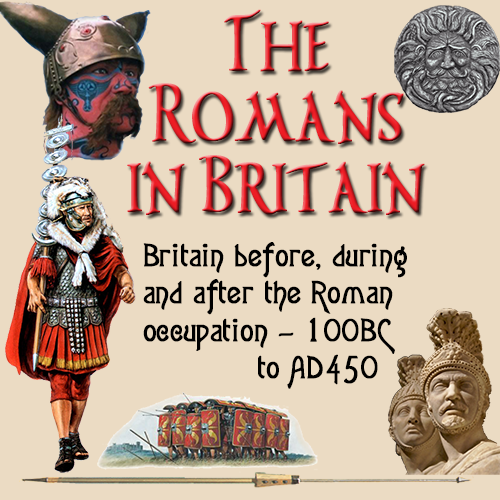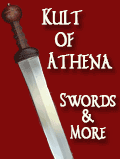Recipe for Posca
 Posca was a popular drink in
ancient Rome and Greece, made by mixing sour wine or vinegar with water and flavouring herbs. It originated
in Greece as a
medicinal mixture but became an everyday drink for the Roman army and the lower classes from around the 2nd
century BC, continuing to be used throughout Roman history and into the Byzantine period. It was not usually
drunk by the upper classes and was associated with the peasants. It was made by reusing wine spoiled by
faulty storage and had important dietary advantages. As well as being a source of liquid, it provided
calories and was an antiscorbutic, helping to prevent scurvy by providing vitamin C. Its acidity killed
harmful bacteria and the flavouring helped to overcome the bad taste of local water supplies.
Posca was a popular drink in
ancient Rome and Greece, made by mixing sour wine or vinegar with water and flavouring herbs. It originated
in Greece as a
medicinal mixture but became an everyday drink for the Roman army and the lower classes from around the 2nd
century BC, continuing to be used throughout Roman history and into the Byzantine period. It was not usually
drunk by the upper classes and was associated with the peasants. It was made by reusing wine spoiled by
faulty storage and had important dietary advantages. As well as being a source of liquid, it provided
calories and was an antiscorbutic, helping to prevent scurvy by providing vitamin C. Its acidity killed
harmful bacteria and the flavouring helped to overcome the bad taste of local water supplies.
An Army Drink
Posca was increasingly heavily used by the Roman army during the Republican period when it became a standard beverage for soldiers. The drinking of quality wine was considered a sign of indiscipline, to the point that some generals banned imported vintage wine altogether. Appian records both posca and wine as being among the provisions of the army of Lucullus in his Spanish campaign of 153 BC. It had evidently become part of the customary rations by the 1st century AD; the Christian Gospels describe Roman soldiers offering Jesus sour wine on a sponge during the Crucifixion. The Historia Augusta records that by Hadrian's time sour wine was a standard part of the normal "camp fare" (cibus castrensis). A decree of 360 AD instructed the lower ranks of the army to drink posca and wine on alternate days.
 Although it was primarily associated with soldiers and the lower classes, some higher-ranked Romans also
drank posca to express solidarity with their troops. According to Plutarch, Cato the Elder was particularly
noted for liking posca. Girolamo Cardano, in his Encomium Neronis, Basel (1562
), attributed the
superiority of the Roman armies to only three factors: the great quantities of levies, their sturdiness and
ability to carry heavy weights due to training, and good foods such as salted pork, cheese and the use of
posca as a drink.
Although it was primarily associated with soldiers and the lower classes, some higher-ranked Romans also
drank posca to express solidarity with their troops. According to Plutarch, Cato the Elder was particularly
noted for liking posca. Girolamo Cardano, in his Encomium Neronis, Basel (1562
), attributed the
superiority of the Roman armies to only three factors: the great quantities of levies, their sturdiness and
ability to carry heavy weights due to training, and good foods such as salted pork, cheese and the use of
posca as a drink.
Clearly posca was good enough to keep a Roman army marching — in his soldiering days, Cato the Elder drank posca to fend off raging thirst. (Plutarch, Cato the Elder, 1.10). The sharpness of the vinegar masked the taste of questionable water, the acidity would have helped to kill off certain bacteria, and, according to a recent study, vinegar makes you feel more full after eating bread.
A Personal Note on Posca
As a Roman reenactor, I have drank posca at events... At first, it seemed strange and probably nasty, but... it wasn't and I can attest that posca is not bad at all and, the stuff made by Marcvs Eqvitivs Lentulvs is particularly good... Do like Grandma said and try different stuff — she was right!
Sources:
A good site that has some info on this (and other Roman cookery) is Pass the Garum, wherein they have some other posca recipes and these sources were added in the site/blog comments for posca:
- P.Oxy. 1384
- Anthimus De Observatione Ciborum 58
- Aëtius Iatrica 3.81—82 (two recipes)
- Paul of Aegina, Epitomæ Medicæ 7.5.10 (two recipes)
Here is a good recipe we have to try. Pass the Garum had a couple others. If you search on the 'Net, you will find many recipes — some easy, some hard with differing ingredients. The sky is your limit.
Ingredients
- 1½ cups of (brewed, not distilled) red wine vinegar.
- ½ cup of honey.
- 1 tablespoon of crushed coriander seed.
- 4 cups of water.
Preparation
- Boil it so that the honey disolves.
- Let it cool down so that it reaches room temperature.
- Filter the coriander seeds.




















